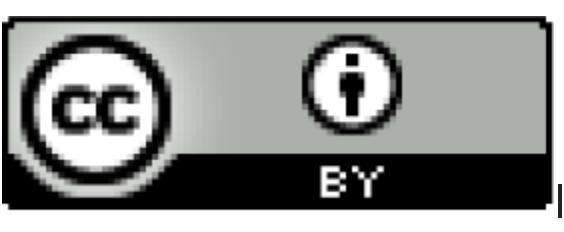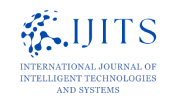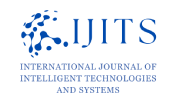IJITS Policies
Archiving Policy
IJITS is committed to the long-term preservation of its content. All articles published by the journal are preserved by Internet Archives.
Complaints Policy
This statement applies about the policies, our procedures and actions about the complaints received to IJITS. We welcome the complaints and try our level best to solve the matters to the entire satisfaction of the authors. While on one side, we welcome any type of query or our complaints at the same time. We would like to inform our authors and readers to read and understand the instructions to the authors and the policy of the journal properly, because we will entertain only those complaints whose solutions and explanations are not given in the webpage of the journal.
Our Understanding about Complaints
- The meaning of complaint we understand is any type of unhappiness or dissatisfaction regarding the publication and policies of the journal.
- The complaint may be due to the long delay in publication or a replies related to the author.
- The complaint may also be about the decision of the editorial board member or chief editor regarding the manuscripts of the author.
- Sometimes, the complaints may be about the rude responses or a misjudgment of the editorial board member.
IJITS is aware about the following types of complaints
- Complaints from the author.
- Complaints about plagiarism.
- Duplicate publication or submitting the article to various journal at the same time.
- Research results misappropriations.
- Complaints regarding the research errors and fraud.
- Violations of research standards.
- Conflicts of interest.
- Bias behavior of reviewers.
Editorial Complaints Policy
Our managing editors, staff, and chief editors will take prompt action on every complaint, irrespective of the authors, academicians, or our readers, and make their full efforts to solve and satisfy the person to their entire satisfaction. We, at the same time, do not consider every statement to be a complaint but if it is a healthy criticism, we thank the person and try to improve our systems.
Policy for Handling Complaints
If the journal receives any complaints which infringe on intellectual property rights or contain material, inaccuracies or unlawful material, the journal will immediately pay full attention, investigate the various aspects of the complaint and try to solve and satisfy the complaints.
Our journal staff and editors make their full efforts to improve the quality of the journal and minimize the mistakes to zero. However, we still accept that occasionally mistakes may occur.
Guiding Principles
Although, as we have started earlier, that we invite queries and entertain complaints for the continuous improvements of the journal quality and for the entire satisfaction of the authors and readers. Although, as we have started earlier, that we invite queries and entertain complaints for the continuous improvements of the journal quality and for the entire satisfaction of the authors and readers.
We take minimum time (maximum two weeks) to solve the complaints of dissatisfaction. Sometimes, if there is a complaint from some other author that the present author by their actions or statements, harmed the intellectual copyrights, we make arrangements for the discussion of both parties to discuss and make the matter clear.
How to make a complaint
The complaints of the authors and readers should be sent to the chief editor as soon as possible by email: editor@ijits.org
Conflict of Interest Policy
A conflict of interest exists when professional judgment concerning a primary interest may be influenced by a secondary interest.
IJITS recommendation
Author’s Conflict of Interest
At the point of submission, IJITS requires that each author reveal any personal and/or financial interests or connections, direct or indirect, or other situations that might raise the question of bias in the work reported or the conclusions, implications, or opinions stated. When considering whether you should declare a conflicting interest or connection, please consider the conflict of interest test: Is there any arrangement that would embarrass you or any of your co-authors if it was to emerge after publication and you had not declared it?
Corresponding authors are responsible to confirm whether they or their co-authors have any conflicts of interest to declare, and to provide details of these. The statement includes any information regarding whether the manuscript is under consideration for other publication, or whether you have any patents that relevant to the manuscript. If the manuscript is published, any conflict of interest information will be written in the Conflict of Interest statement.
Author’s Acknowledgement
Authors whose manuscripts are submitted for publication must declare all relevant sources of funding in support of the preparation of a manuscript. IJITS requires full disclosure of financial support as to whether it is from government agencies, the pharmaceutical or any other industry, or any other source. Authors are required to specify sources of funding for the study and to indicate whether or not the manuscript was reviewed by the sponsor prior to submission. This information should be included in the Acknowledgements section of the manuscript.
In addition to disclosure of direct financial support to the authors or their laboratories and prior sponsor-review of the paper, corresponding authors will be asked to disclose all relevant consultancies since the views expressed in the contribution could be influenced by the opinions they have expressed privately as consultants. This information should also be included in the Acknowledgments section of the manuscript.
Reviewer’s Conflict of Interest
Reviewers must disclose to editors any conflicts of interest that could bias their opinions of the manuscript, and should recuse themselves from reviewing specific manuscripts if the potential for bias exists. As in the case of authors, silence on the part of reviewers concerning potential conflicts may mean either that such conflicts exist that they have failed to disclose, or that conflicts do not exist. Reviewers must not use information of the manuscript they are reviewing before it is being published, to further their own interests.
Copyright, Open Access and Licenses
Copyright
IJITS allows the author(s) to hold the copyright, and to retain publishing rights without any restrictions.
Open Access Policy
IJITS provides immediate open access to its content on the principle that making research freely available to the public supports a greater global exchange of knowledge. This journal is open access journal which means that all content is freely available without charge to users or/institution. Users are allowed to read, download, copy, distribute, print, search, or link to full text articles in this journal without asking prior permission from the publisher or author.
License
License (CC BY 4.0)

All works published in IJITS is licensed under a Creative Commons Attribution 4.0 International License.
Peer Review Process
All submitted manuscripts for publication in IJITS will be evaluated by editors. The evaluation will include plagiarism check by using “Turntin or DrillBit Plagiarism” Anti-Plagiarism Software to check the authenticity of the articles, reference accuracy, conformity with focus and scope. Manuscript which is inappropriate with the journal criteria will be rejected promptly without external review. On the other hand, manuscript which has suitable and potential interest to our readership will be sent to reviewers. The manuscripts will be evaluated by 2 (two) qualified peer reviewers. The peer reviewers should examine the manuscript and return it with their recommendation to the editorial boards as soon as possible, usually within 3 weeks. The Editors, then, will discuss and make a decision based on the reviewers’ recommendation from among several possibilities: accepted, need minor revision, major revision, or rejected. The editor has a right to decide which manuscripts submitted to the journal should be published.
All the peer review process will be done through Double-Blind Peer Review process (Reviewer and Authors’ identities remain anonymous). In short, the review process will be done as the following:
- Author submits the manuscript directly to the IJITS.
- Editor Evaluation/Desk Review (includes plagiarism check by Turntin or DrillBit, reference accuracy, conformity with focus and scope. Manuscript could be rejected or returned to the review process).
- There are two reviewers who evaluate each manuscript submitted to the journal.
- Double-Blind Peer Review process (Reviewer and Authors’ identities remain anonymous)
- Editor Decision (based on revised article)
- Proofread
- Confirmation to the author
Plagiarism Policy
The IJITS has a policy of screening for plagiarism. We use Anti-Plagiarism Software "Turnitin or DrillBit Plagiarism Detection Software" to check the authenticity article.
All submitted manuscripts must be in the Journal's acceptable similarity index range:
- <10%: PASS.
- >10% and <20%: Revise and resubmit
- >20%: REJECT.
Privacy Statement
The names and email addresses entered in this journal site will be used exclusively for the stated purposes of this journal and will not be made available for any other purpose or to any other party.
Publication Fees
Currently, no Article Processing Charges (APC) is charged for submission or publication. (This policy may be revised in future issues.)
Publication Frequency
IJITS is published online Bi-Monthly i.e 6 issues per year.
Unique Identifiers and Structured Data
Persistent article identifiers used by this journal: DOI
IJITS is committed to generate DOI numbers for every published article through Crossref.
Publication Ethics
Publication Ethics Statement
IJITS is committed to publish high quality of the research works in the areas of, Social Sciences and Management Research. For all parties involved in the act of publishing (the author, the journal editor(s), the peer reviewer and the publisher) it is necessary to agree upon standards of expected ethical behavior. The ethics statements for our journal are based on the Committee on Publication Ethics (COPE) Best Practice Guidelines for Journal Editors
Authors’ responsibilities
- Authors must certify that their manuscripts are their original work.
- Authors must certify that the manuscript has not previously been published elsewhere.
- Authors must certify that the manuscript is not currently being considered for publication elsewhere.
- Authors must participate in the peer review process.
- Authors are obliged to provide retractions or corrections of mistakes.
- All Authors mentioned in the paper must have significantly contributed to the research.
- Authors must state that all data in the paper are real and authentic.
- Authors must notify the Editors of any conflicts of interest.
- Authors must identify all sources used in the creation of their manuscript.
- Authors must report any errors they discover in their published paper to the Editors.
Editors’ responsibilities
- Editors have complete responsibility and authority to reject/accept an article.
- Editors are responsible for the contents and overall quality of the publication.
- Editors should always consider the needs of the authors and the readers when attempting to improve the publication.
- Editors should guarantee the quality of the papers and the integrity of the academic record.
- Editors should publish errata pages or make corrections when needed.
- Editors should have a clear picture of a research’s funding sources.
- Editors should base their decisions solely on the papers’ importance, originality, clarity, and relevance to publication’s scope.
- Editors should not reverse their decisions nor overturn the ones of previous editors without serious reason.
- Editors should ensure that all research material they publish conforms to internationally accepted ethical guidelines.
- Editors should only accept a paper when reasonably certain.
- Editors should act if they suspect misconduct, whether a paper is published or unpublished, and make all reasonable attempts to persist in obtaining a resolution to the problem.
- Editors should not reject papers based on suspicions; they should have proof of misconduct.
- Editors should also call to the Editor in Chief’s attention any substantial similarity or overlap between the manuscript under consideration and any other published paper of which they have personal knowledge.
- Editors should not allow any conflicts of interest between staff, authors, and editor board members.
- Editors should keep all information regarding papers confidential and treat them as privileged information.
- Editors should express their views clearly with supporting arguments, with no personal criticism of the author.
- Editors should identify relevant published work that has not been cited by the authors.
- Editors should not review manuscripts in which they have conflicts of interest resulting from competitive, collaborative, or other relationships or connections with any of the authors, companies, or institutions connected to the papers.
Reviewers' responsibilities
- Must disclose any competing interest before agreeing to review a submission.
- Can refuse to review any submission due to a conflict of interest or inadequate knowledge.
- Review all submissions objectively, fairly and professionally.
- Reveal any ethical misconduct encountered while reviewing to the Chief Editor for further action.
- Should ensure the originality of a submission and be alert to any plagiarism and redundant publication.
- Must not discuss the content of the submission without permission.
- Adhere to the time allocated for the review process. Requests for extension to review the submission are at the discretion of the Chief Editor.
Publishers’ Responsibilities
- IJITS is committed to work with journal editors, defining clearly their relevant roles, in order to ensure appropriate decisions regarding publication procedures and maintaining the transparency of editorial decisions.
- IJITS ensures the integrity autonomy and originality of each published article with respect to:
- Publication and research funding’s
- Publication ethics and rectitude
- Conflicts of interest
- Confidentiality
- Authorship
- Article modifications
- Timely publication of content

